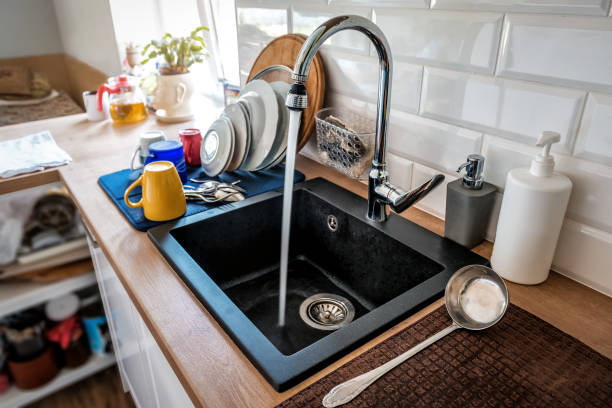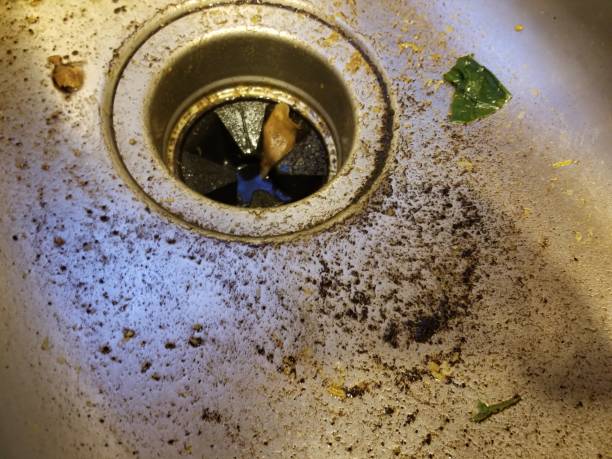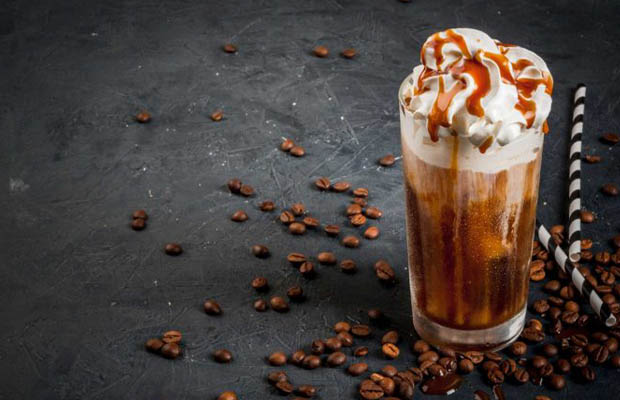Have you ever heard that putting coffee grounds down the sink can clean or freshen the drain’s odor? Don’t believe the myth! A garburator shouldn’t ever be used as a trash can. Avoid pouring coffee grounds down the drain unless you want to deal with some major clogs.
Let’s examine this issue more closely and see what you can do if you’ve already sinned and your kitchen sink drains are clogged.
Can You Put Coffee Grounds Down the Sink?
By the time they are ground and used in brewing, coffee beans are almost like rock. The pit from a peach, apricot, or nectarine that is about as hard would not break down like other foods, and the same is true for coffee beans.
We don’t blame you if you typically grind coffee beans in the garbage disposal because it seems to be the most hygienic and practical. And the reasoning would be clear to anyone who has ever had to clean up coffee grounds from the trash after a dog got into it. Unfortunately, coffee grounds do not decompose in water; as a result, they do not grind up and wash away in the garbage disposal as other foods do. Instead, they clump together, and over time, they can pack the drain until it becomes clogged.
Why is Coffee Grounds Hard to Dissolve?
Rock-hard beans are the miniature version of coffee grounds.
During the brewing process, those same beans also release oils. The task of dissolving coffee oils is difficult because oil and water don’t mix.
How to Unclog Coffee Grounds from the Sink?
For vinegar and baking soda, search your pantry. Baking soda is the best way to naturally unclog coffee grounds from clogs because it has an alkaline pH.
However, you might want to proceed cautiously when grabbing your vinegar jar. First, unless you want to breathe toxic fumes, avoid mixing vinegar and bleach. However, a tough clog can be removed in about an hour if you mix baking soda, vinegar, and 4 quarts of boiling water.
Of course, you could call a plumber instead, which would be more expensive. To clear the obstruction, he would employ a snake tool.
How to Refresh Up Your Sink?
There is a simple way to get rid of smells coming from your pipes, though you shouldn’t put strange things like coffee grounds and lemon wedges in your sink system. We advise you to run the hot tap for 30 seconds once every month while adding a small amount of degreaser dish soap to the sink. In order to prevent odors and from having to call Berwick plumbers for blocked drains, it is best to avoid putting any kitchen scraps down your sink.

What Else Can You Do With Used Coffee Grounds?
1. Set a small open container of used grounds in the back of your fridge to absorb food odors
2. Use as an exfoliant (A small amount of ground coffee won’t damage your pipes!)
-On hands: to scrub away stubborn smells or fluids from mechanical work
-On the body: mix with coconut oil and scrub away dead skin cells
3. Use as a dye
-White clothing with a golden hue
-Plain paper into ‘antique’ stationary
4. Make your own candles and soap
-Candles with a coffee scent are made by melting wax, combining it with coffee grounds, and pouring the mixture into a paper cup with a candlewick. Take a sip after removing the cup.
-Did you know that your skin can actually absorb caffeine?
5. Treat yourself to an all-natural Spa day
-Coffee grounds, cocoa powder, milk, and one large spoon of honey were used as a facial treatment. Clean up with a towel, then wash any leftover coffee grounds in the sink.
-Cleanse your hair of built-up residue from styling products: massage a handful of grounds through the hair and rinse out
How to Dispose of Coffee Grounds?
Coffee grounds can be disposed of in a number of ways without clogging your pipes. Fortunately, a lot of the techniques make your morning coffee more valuable.
Tossing your used coffee grounds in the trash is the obvious solution. Even though it might not be the most environmentally friendly option, it is still preferable to simply rinse them down the sink. Composting them is a better alternative. This is a simple option if you’re using a paper filter to make your coffee because it can usually be thrown in the compost as well.
You don’t want your ground coffee to go to waste if you have a garden. It adds important nutrients to the soil, such as potassium and nitrogen, absorbs heavy metals, and draws in helpful earthworms.
Wrapping Up: Never Put Coffee Grounds In your Sink
Now that you are aware, never put coffee grounds in your sink. You are rinsing away a lot of potential in addition to the fact that they are bad for your plumbing. Recycle your coffee grounds in your home or garden to give your morning coffee a double boost!




